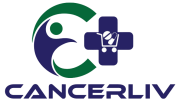Prevention
Explore effective cancer prevention strategies on Cancerliv. Learn how lifestyle choices impact cancer risk and the vital role of screening in early detection. Gain practical tips for adopting a healthier lifestyle and understand the importance of regular cancer screenings for early treatment and better outcomes.
Prevention: Empowering Choices for Cancer Prevention
Introduction to Cancer Prevention
Prevention plays a crucial role in reducing the risk of developing cancer. At Cancerliv, we believe that informed choices and proactive measures can significantly impact your health and well-being. This section explores how lifestyle choices can influence cancer risk and the importance of screening and early detection in fighting cancer.
Lifestyle and Cancer
Understanding the Connection
Your lifestyle choices have a profound impact on your overall health and your risk of developing cancer. Certain habits and behaviors can either reduce or increase cancer risk. Here, we provide insights into how you can modify your lifestyle to support cancer prevention.
Diet and Nutrition
A nutritious diet rich in fruits, vegetables, whole grains, and lean proteins can help lower the risk of cancer. Foods high in antioxidants and fiber are especially beneficial. Conversely, reducing the intake of processed meats, red meat, and sugar-laden foods can decrease cancer risk.
Physical Activity
Regular physical activity not only helps maintain a healthy weight but also reduces the risk of several types of cancer, including breast, colon, and lung cancer. Adults should aim for at least 150 minutes of moderate-intensity or 75 minutes of high-intensity exercise each week.
Tobacco and Alcohol Avoiding tobacco in all forms is the single most significant step you can take to reduce your cancer risk, as it is linked to various types of cancer, including lung, mouth, throat, pancreas, and bladder cancer. Limiting alcohol consumption can also lower the risk of cancers such as breast, liver, and colorectal.
Sun Exposure
Protecting your skin from excessive sun exposure by using sunscreen, wearing protective clothing, and avoiding the sun during peak hours can significantly reduce the risk of skin cancer. Opt for broad-spectrum sunscreens with an SPF of at least 30 .
Screening and Early Detection
The Importance of Screening
Early detection of cancer can lead to more effective treatment and a higher chance of survival. Screening tests can detect cancer before symptoms appear, making them a vital tool in cancer prevention.
Common Screening Tests
- Breast Cancer: Mammograms are recommended for women aged 40 and older, but earlier screening may be advised based on personal and family medical histories.
- Colorectal Cancer: Starting at age 45, both men and women should undergo regular screenings such as colonoscopies or fecal occult blood tests.
- Cervical Cancer: Pap tests and HPV tests are critical for women, starting at age 21 and continuing through age 65.
Personalized Screening Plans
Because everyone’s risk factors are different, it’s important to discuss with your healthcare provider which screenings are appropriate for you and how often you should undergo them. Your family history, genetic predisposition, and lifestyle all play a role in determining the best screening strategy.
Encouraging Regular Check
Ups Regular check-ups with your healthcare provider are an opportunity to review your overall health, discuss any changes, and update your cancer screening plan. Staying informed and proactive can
make a significant difference in your health outcomes.
Cancerliv: Your Partner in Cancer Prevention
At Cancerliv, our mission is to empower you with the knowledge and resources to make choices that enhance your health and reduce your cancer risk. Together, we can embrace a lifestyle that promotes well-being and longevity.
Related Topics
Cancer vaccines are rapidly evolving as a cornerstone of modern oncology, harnessing the immune system to fight cancer more effectively than ever before.
In the ongoing battle against cancer, scientists are constantly exploring innovative ways to enhance the efficacy of treatments.
Cancer treatment can be prohibitively expensive, encompassing direct medical costs such as surgery, chemotherapy, radiation, and medication,
